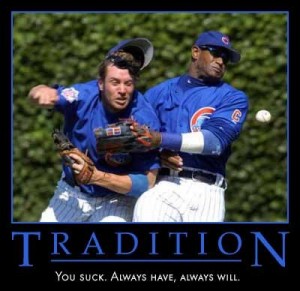Forgive me for being a bit tardy on this news item, as well as for straying – initially at least – from my professed subject matter.
But I’ve been thinking a lot lately about Bristol Palin, who is, as you know, the Republican VP candidate’s poor knocked-up teenage daughter.
Religious conservatives have rallied around the girl and said that her condition is nobody’s business, or that it is actually good news because it verifies Palin’s pro-life credentials. So as a thought experiment, let’s reverse the situation:
Say that Obama or Biden had a 17-year-old daughter who got pregnant and is keeping the baby. Would we hear from social conservatives how it’s irrelevant, or proof of the candidate’s humanity, or even inspiring?
More likely, we would hear how liberals don’t instill proper values in their children, or that they don’t respect traditional family values, or that their lax parenting proves their inability to lead the country, or that it all sets a poor example for young people.
My point isn’t that religious conservatives can be hypocrites, or that abstinence-only sex ed doesn’t work, or that this girl’s condition has become a campaign issue (although to be honest, all of that is true). Rather, this is my long-winded way of addressing the powerful and detrimental nature of religion in American culture.
So what has this, specifically, got to do with Hispanics?
Well, as you may or may not know, Latinos are the alpha and omega of Catholicism in the United States, and perhaps the world. Consider that in America, almost 70% of Hispanics are Catholic, compared to just 20% of the general population. Some countries in Latin America are as Catholic as Middle Eastern countries are Islamic.
Has all this religion helped the Hispanic community? I would argue that it has not.
The stranglehold that the Catholic Church has over Hispanic culture has bred a unique form of interdependence. Faith in God’s master plan has superseded faith in one’s abilities and talents. This latter type of perseverance – call it secular if you want – is more needed than ever in communities where deep-seeded problems demand creative answers. Instead, with all the issues facing the Latinos, prayer is the answer most often given as a viable solution.
For a more specific example, let’s look at the horrific graduation rate of Latino adolescents. It’s no surprise that Hispanic teens lag so far behind white, black, and Asian American students in actually getting through high school. The priority that Latino culture places on religion dwarfs the attention given to education (I will post more on this discrepancy later). Especially among immigrant parents, making sure that a kid does all his homework is not nearly as vital as ensuring his attendance at Mass (I will add that my mother was an exception to this mindset, which was to my great benefit).
Social conservatives love to proclaim that issues in barrios and hoods exist because the people who live there have grown too dependent on government largesse to fend for themselves. They may have a point.
However, their alternative has often been to push for more dependence on Christianity, a cultural force that, unlike government, isn’t accountable to voters. How else do we explain the dreaded faith-based initiative?
A natural objection to all my negativity is to point out the good that religion does. Indeed, many people have turned their lives around because of a newfound faith, and some of our greatest leaders (eg, Martin Luther King Jr.) were driven by religion. And in Latin America, numerous priests in Central America – to say nothing of the great Archbishop Oscar Romero – have sacrificed their lives for a greater good.
Still, at this point in history, is the net effect of religion in general (and Catholicism on Latino culture specifically) a positive? My belief is that it ultimately does more harm than good.
So I’m pleased to see that young Latinos, like the younger generation overall, are at least pausing to consider if all this praying is really worth it.
A report by the University of Notre Dame’s Institute for Latino Studies shows that Hispanics become less Catholic with each U.S.-born generation. This lines up with surveys showing that the number of nonreligious young people (those from 18-25 years old) has nearly doubled over the last generation (from 11 percent in 1986 to 20 percent today).
This should not be construed as a clamoring for atheism or a call to burn down all the churches. Rather, it is quite possibly Latino culture’s gradual realization of the need for balance.
And perhaps it is the recognition that going to church and worshipping really hard is not sufficient to raise our standard of living. Maybe Hispanics are learning that, you know, God helps those who help themselves.






